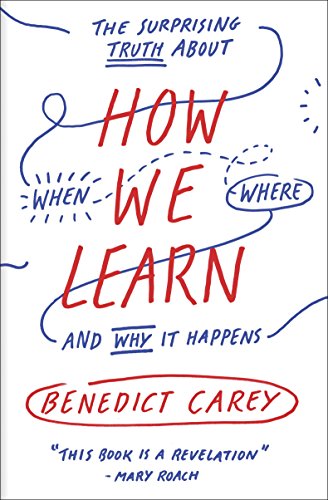How We Learn: The Surprising Truth About When, Where, and Why It Happens by Benedict Carey Link to heading
Summary Link to heading
“How We Learn” by Benedict Carey explores the intricacies of the learning process by delving into scientific research and cognitive studies to unveil what truly enhances learning. Carey challenges traditional notions about education and studying, highlighting how varied elements like forgetting, sleep, and distractions can play significant roles in how effectively we learn. The book provides insight into mental processes and practical strategies that can be adopted to improve learning outcomes, making it a useful resource for students, educators, and anyone interested in optimizing their learning strategies.
Review Link to heading
Benedict Carey’s book is informative and accessible, combining scientific insights with practical advice. Its strength lies in translating complex cognitive and psychological research into user-friendly concepts relevant to everyday learning scenarios. The author’s engaging narrative style helps to demystify many misconceptions about learning. A critique might be that some readers could find the translation from theory to practice needing a bit more specificity, but overall, the book is praised for making scientific learning research engaging and applicable.
Key Takeaways Link to heading
- Forgetting as a Tool: Forgetting is an integral part of learning; it strengthens memory by forcing the brain to retrieve information, making the learning process more robust.
- Spacing Effect: Distributed practice or spacing out study sessions significantly enhances retention compared to massed practice (cramming).
- Interleaved Practice: Mixing different but related topics or skills during study sessions can improve problem-solving and brain flexibility.
- Testing Effect: Frequent testing or self-quizzing enhances long-term memory retention more effectively than mere rereading.
- Varied Environment: Changing physical locations while studying can help improve information recall and retention.
Recommendation Link to heading
“How We Learn” is recommended for educators, students, lifelong learners, and anyone seeking to understand and improve their learning techniques. It offers valuable insights into effective learning strategies that can be applied in various settings, from school to workplace training programs. The book is ideal for those interested in scientifically-grounded, practical advice on learning enhancement.
